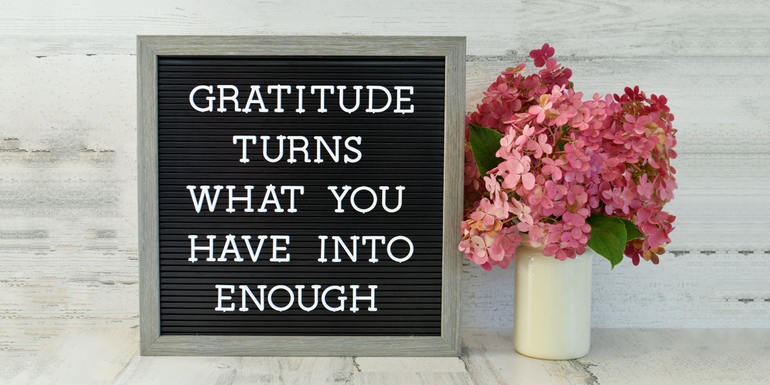Some people say that magic isn’t real, but what about the first magic words we’re all taught to say? No – not “abracadabra” or “zimzalabim”, although those are great words. Abracadabra is thought to come from the Aramaic phrase “avra kehdabra”, meaning “I will create as I speak”, and zimzalabim comes from the mythological tricksters, Zim Zala and Bim.
But, our most basic and formative levels of social etiquette (getting people to do what we want = magic) include the words “please” and “thank you”. Leading money gurus and coaches are increasingly aware that much of our sentiment and feelings influence our ability to create, grow, protect and share our wealth. Having a positive mindset around our money is instrumental in maintaining good mental health.
Many years ago, the phrase “an attitude of gratitude” became a popular saying. If we read the early Stoic philosophers, the themes of thought linking gratitude and wellness are abundant, reminding us that it’s not a new concept but possibly as old as magic itself.
The link between gratitude and our wealth can be as simple as saying thank you when we receive a flow of money. It can be from a regular paycheck, an upward shift in our stocks, the sale of an asset or any other windfall or gift of generosity. Every time we open a statement or receive a notification from our bank or e-wallet letting us know that there’s more money now than there was a few seconds ago, we can say, “Thank you, money.”
The thought behind this practice is much deeper than simply acknowledging the money itself; rather, it’s about recognizing the gratitude for what the money will mean to how you can be generous. When we see money as a flowing commodity that moves quite freely between us all, we can see how it connects and empowers us, and we can use it in a healthier way.
We can also say “thank you, money” when spending (paying it forward) money. Whether it’s for a basket full of groceries, school fees, a cup of coffee, dinner out with our loved ones, or a payment for our home, releasing that money with gratitude improves our mental wellbeing and our ability to sustain a positive mindset.
What we’re ultimately saying is that we’re grateful that we have the money we need, to do what we need to, at that moment. This is why it’s so much deeper than just the momentary transaction. This approach speaks to how we received the money and have kept it; it recognizes the people involved and the opportunities with which we’ve been gifted.

